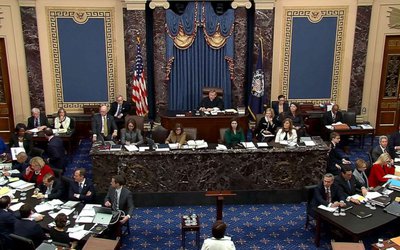More on National



Nepal’s foreign policy is in a political wilderness today. No political elite, neither in the government nor in the opposition, spares time to consider the implications of the fast changing international and regional politics -- as if nothing has happened to them. However, they never fail to react to events and opinions concerning their failures. Ranging from the firebrand Maoist Pushpa Kamal Dahal Prachanda to Prime Minister Madhav Kumar Nepal or Nepali Congress’s Sushil Koirala, all leaders of the so-called major parties adopt reactive postures without, however, weighing the pros and cons of their utterances. Prachanda started spitting fire againt India after his ouster from power. Madhav Nepal was angry with the UN Secretary General on the issue of the United Nations Mission in Nepal and on the former’s comments on the government’s failure to take the peace and constitution making processes ahead. Sushil Koirala and his colleagues also joined the anti-UNMIN chorus. It was more intriguing when the Prime Minister himself gave a nod to the Chief of the Army Staff, Chhatra Man Singh Gurung, to lobby against the extension of UNMIN that has put the army and the Maoist ex-combatants under its monitoring radar requiring both the forces to observe the code that they should not go out of their barracks or camps freely.
The most disgusting part in the conduct of Nepal’s current policy is that it has in fact no policy at all. The fractious politics of Nepal is also reflected in the conduct of the affairs of the state. Nepal has neither governance nor government in the real sense of these terms. Driven by horses facing different directions, the government leaders have failed to take decisions to add new values to their respective ministries. If a certain issue surfaces, all ministers start speaking on it even when their speeches are at variance with the policy of the Prime Minister or the government. UNMIN was one such issue for engaging the politicians, followed by Maoist-India and Maoist-China relations. For some time, the Machine Readable Passport (MRP) issue dominated the agenda. The Deputy Prime Minister with the portfolio of foreign affairs and the officials of the ministry were engaged in a media war with the former opposing the deal struck with one of the contractors and the ministry taking a decision to offer the contract to a foreign company. Finally, the cabinet took a decision despite a strong protest of the concerned minister. Surprisingly, the minister didn’t resign on the issue as is normally done in other countries.
How ministers speak with conflicting voices has also been observed in the Indian government’s report submitted to the Nepali government that the Maoist leaders have been providing training to the Maoists of India in jungles , or in camps lodged by the ex-Maoist combatants. A strong denial came from the UCPN (Maoist) leaders that no such training had ever been undertaken by the Nepali Maoists and hence it was reprehensible. What is more interesting is that the ministers themselves have taken contradictory positions with ministers denying or supporting the report. Now the Inspector General of Armed Police Force himself told the media that his intelligence source has not yet received any evidence on the purported training.
On the domestic front, the election of the Prime Minister and the failure of parties to handle the issue have stalled the constitution making and peace processes as the leaders are preoccupied with grabbing the coveted Prime Ministerial chair, showing the least interest in the main agenda of the country. The incomplete election has also dragged India and other powers into domestic politics. The two neighbors, India and China, appear to be concerned greatly for their own respective reasons. The financial help allegedly offered by a Chinese national to influence the outcome of the Prime Ministerial election and visit of the Special Envoy of Prime Minister Manmohan Singh of India on the eve of election of Prime Minister of Nepal and its exposures to the media have suggested how Nepal’s politicians are increasingly losing their own credibility and independence. In 1951, India had prevented King Tribhuvan from appointing B.P. Koirala as Prime Minister due to lack of personal equation between Nehru and Koirala as the former considered latter too abrasive for maintaining relations with all the forces including the Ranas. His letter to the King which is published in the first volume of A.S. Bhasin’s edited book or as narrated in Atma Britanta by B.P. himself reveals that, Koirala , despite his popularity, was a bete noire for Nehru. It denied the post of Prime Minister to B.P. Whether or not Nepal’s democratic history would have been different if he had been a Prime Minister, the alternative provided to King Tribhuvan didn’t also turn out to be positive for Nepal. On the contrary, it paved the way for bouts of political instability leading to the termination of the party system itself in 1960.
Can Prachanda’s case in 2010 be compared to the politics of preference shown by India as had happened to B. P. Koirala ? Yes, given the close linkages between Nepal’s domestic politics and India’s own perceptions about developments in Nepal since the dawn of modern Nepal, especially after signing the Treaty of Sugauli , such phenomenon was nothing new in the past and will also continue to influence events in Nepal in the future. The psychology of power and the geo-political imperatives may make India more concerned about Nepal’s developments than in the past. Since strategic significance of Nepal is increasing, other powers’ activities are also likely to increase. Moreover, decline of states and erosion of absolute concept of sovereignty themselves are to be related to the emerging trends of global geo-politics that tend to erase national boundaries and erode the classical doctrine of sovereignty. Agendas of climate change, transnational terrorism and a host of other factors have made inter-state relations more complex and vulnerable.
Nepal’s foreign policy which is almost a forgotten agenda today needs to be revisited in order to update and contextualize to the new regional and world politics. First of all, Nepal’s own house should be in order by forging minimum level of understanding for shaping the political future. Guided by the past prejudices and mind set, Nepali political elites may not cope with daunting problems and crises. Since such problems have immediate implications for others, only realistic approach and acumen would bridge the gap between Nepal and its two neighbors. It is said: “Geography still counts. It counts in a strategic and tactical military sense, a political sense, and a culturally defined territorial sense, and it counts in terms of the spatial distribution of resources, peoples, and physical systems.” We cannot change geography, nor can we prevent the all invading influences of the rising powers, India and China. But we can maintain our independence and sovereignty through a diplomacy based on realism and principles. And reliance on diplomacy is the only guarantee to national security.
Lok Raj Baral (Ph.D.) is Professor and Executive Chairman, Nepal Centre for Contemporary Studies (NCCS), Kathmandu.





